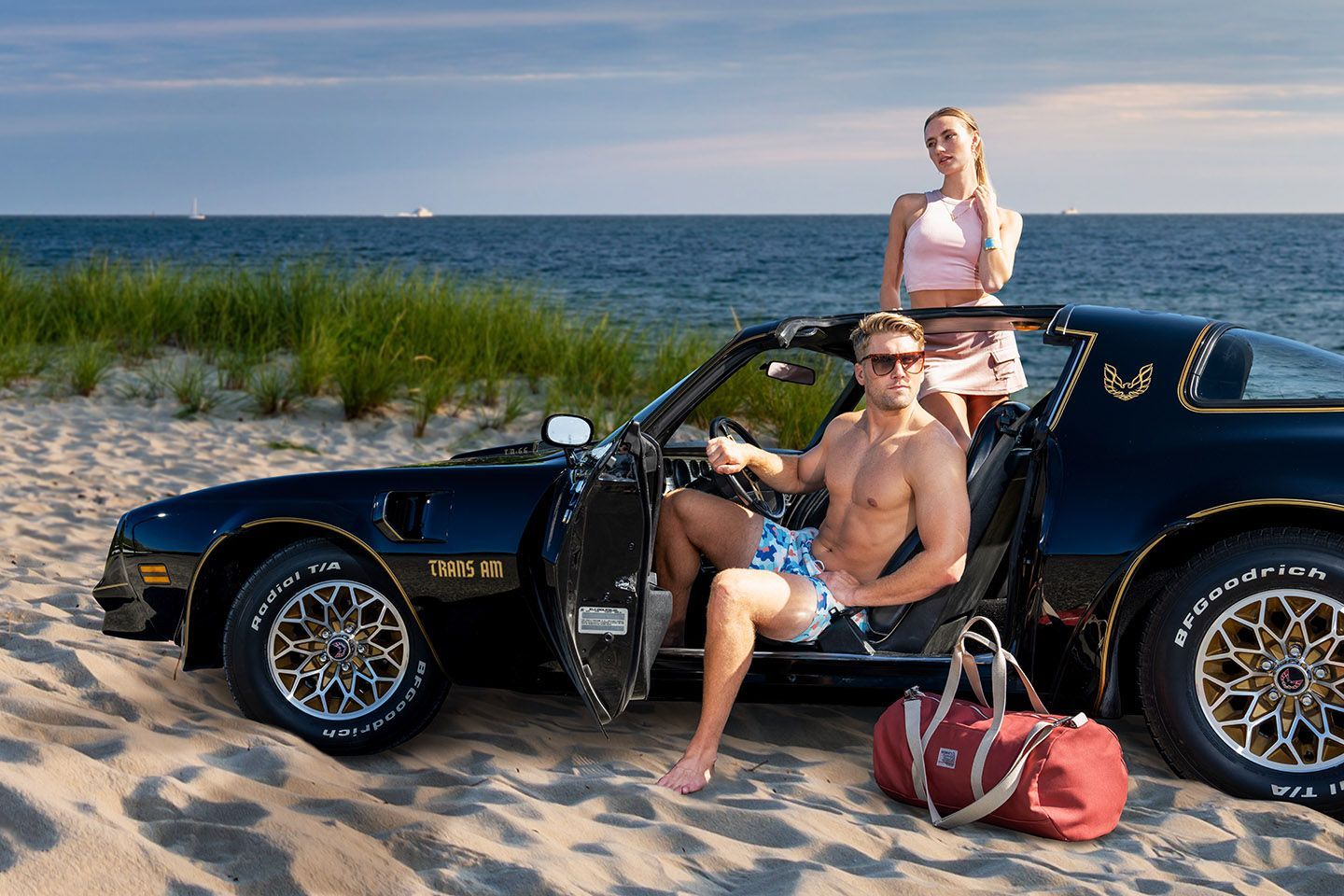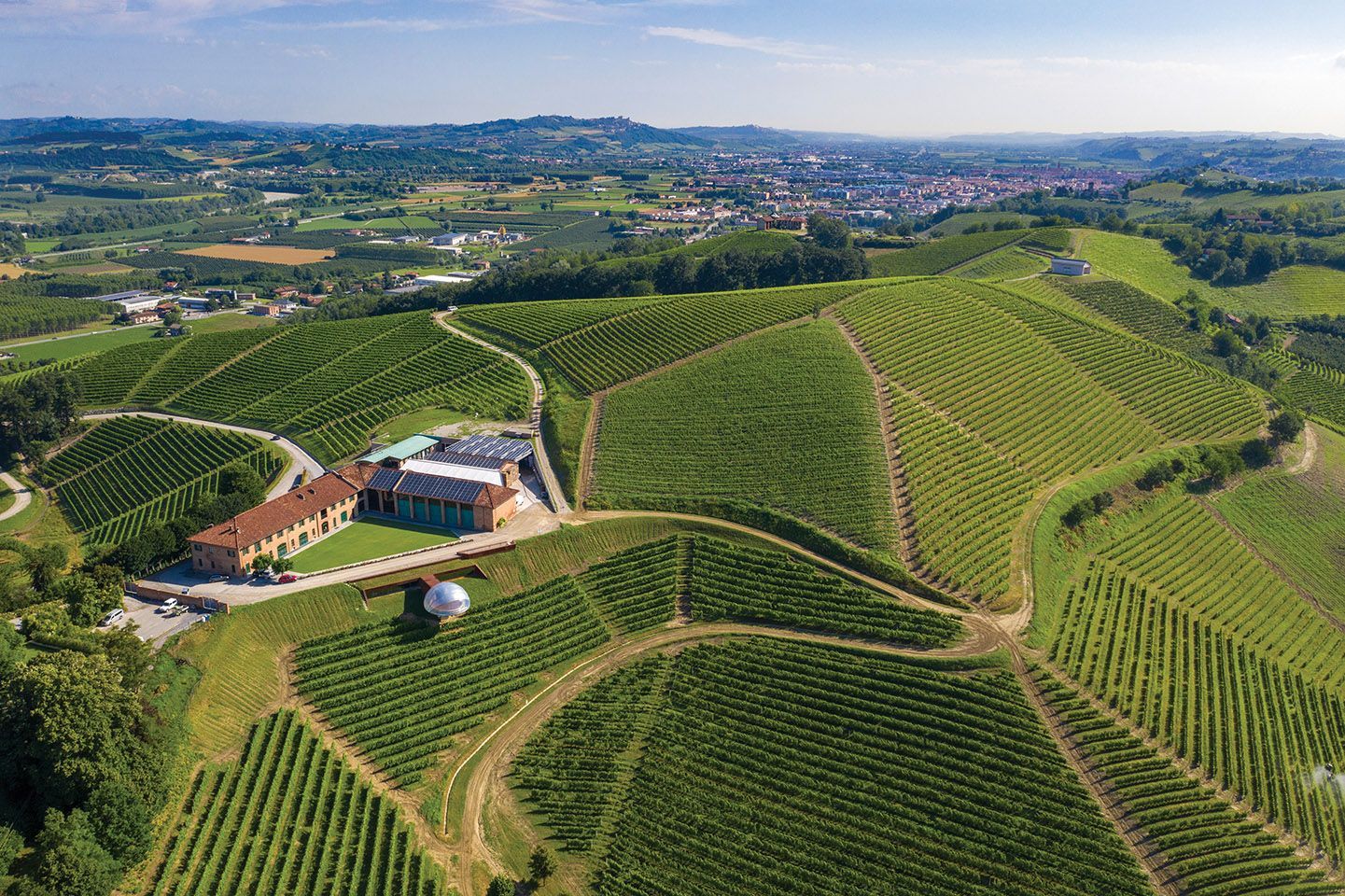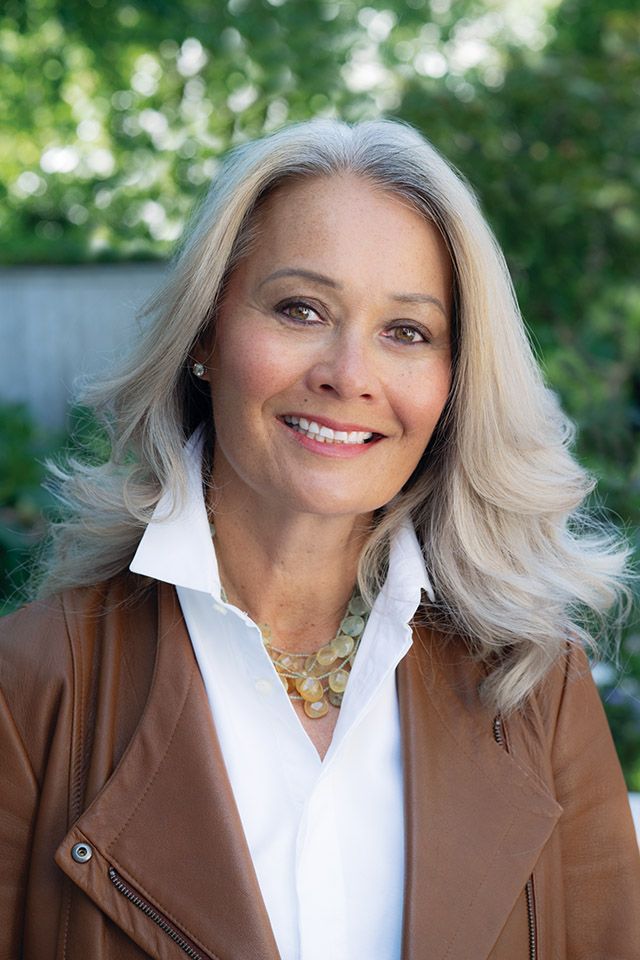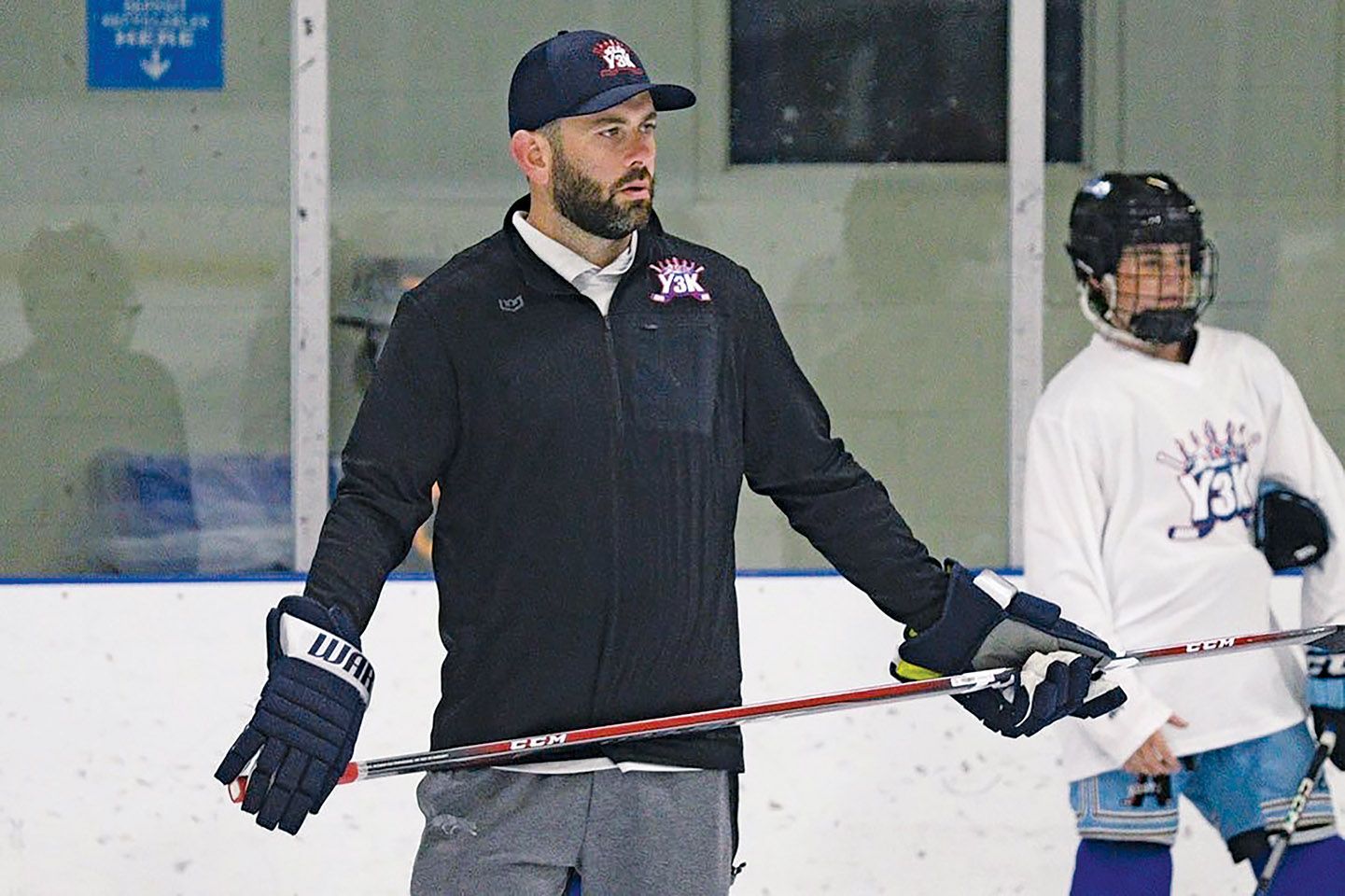Above the Belt
Brazilian jiu-jitsu provides not only physical benefits but psychological ones as well.
HEALTH & SPORTS
story by Antonia DePace
photography by Kit Noble
Two years ago, Nantucket resident Sarah Todd decided to fulfill her mixed martial arts fighter fantasy and sign up for Brazilian jiu-jitsu (BJJ). She began
taking private lessons with Jules Embry- Pelrine, owner of the Nantucket Martial Arts Alliance. As she gained confidence in the sport, she moved into public classes with Andre Dobrochinski of the Werdum Training Center—the only other BJJ school on-island. “Very simply, BJJ completely changed my life,” says Todd, who has earned a blue belt in the sport. “I’ve been in therapy and practiced yoga and mindfulness techniques for more than 20 years, but nothing has helped me heal from trauma in the way that BJJ has.”
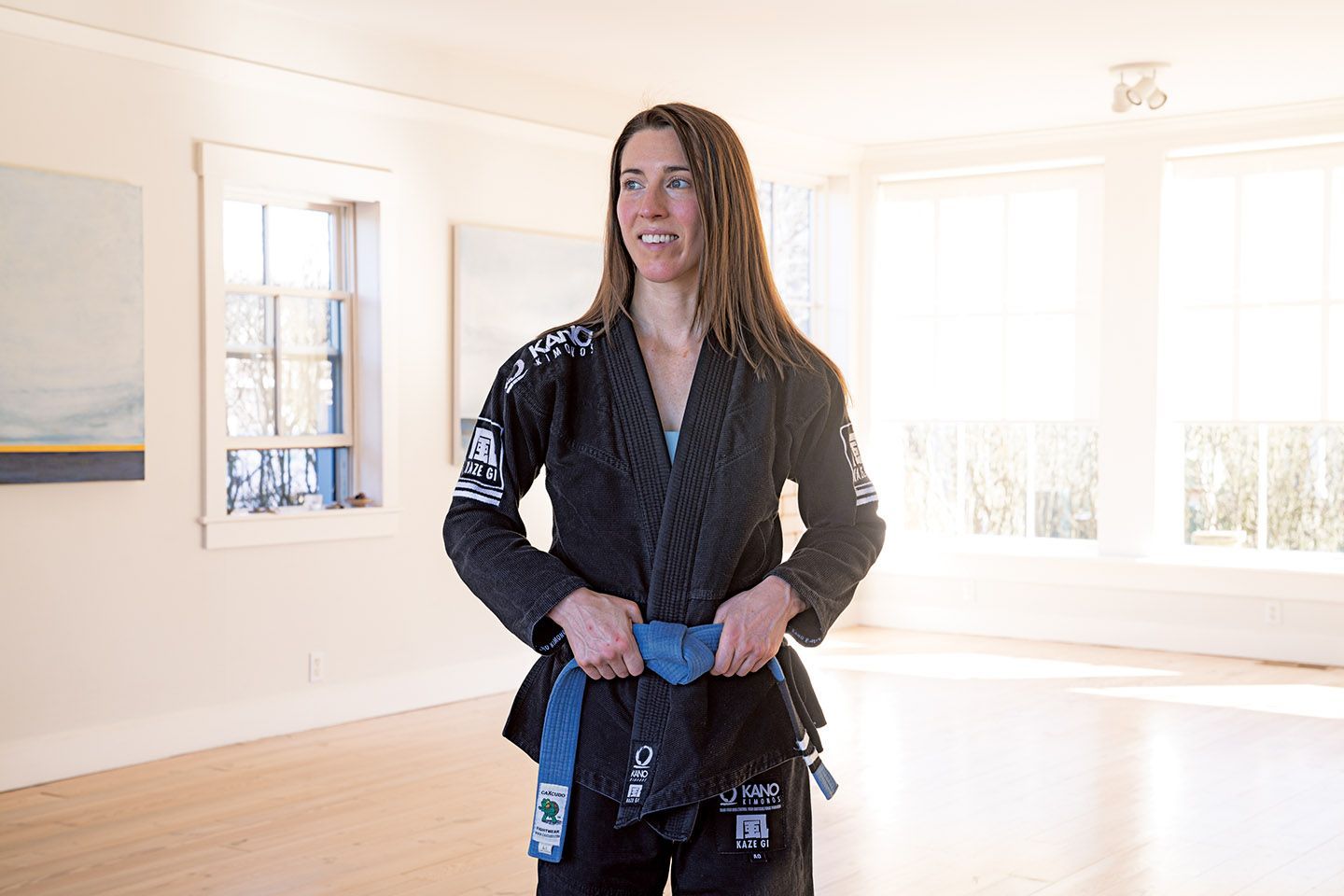
This isn’t a rare outcome for those who decide to learn the self-defense combat sport, which gained popularity in the United States in the early 1990s due to Ultimate Fighting Championship (UFC) Hall of Famer Royce Gracie. While there are obvious physical benefits (one can burn between 500 and 700 calories per hour, if not more), it’s the mental advantages that outweigh them all.
“The growth from jiu-jitsu is far beyond the physical—the true value of jiu-jitsu is mental,” Dobrochinski explains. “When you’re on the mats, you leave the problems and stress of the outside world behind. No electronics or thoughts outside of jiu-jitsu—you are 100 percent focused and present, learning skills that will help you succeed both on and off the mats. We learn how to be humble and calm; we learn how to be composed and strong under pressure.” In fact, the mindfulness techniques practiced throughout BJJ—teaching students to be more aware of their surroundings and to move and react with intention—are similar to those of meditation.
The sport proves to be especially effective on Nantucket, specifically during the long, dragging winter months. It gives locals something to do, something to focus on and skills they can carry outside of the dojo and into real-life settings. “If you can learn how to be focused and effective while another human is actively trying to control your body and choke you, you can carry this resilience and sense of calm into the rest of your life,” Todd says. “Talking about your problems and learning to stay present are also essential tools for healing, but there is nothing like the somatic experience of BJJ for reorienting your nervous system’s response to triggers in real time and having endless opportunities to practice this skill.”
Another key benefit to the ground-grappling sport, according to Embry-Pelrine, is independence. “You don’t need to be physically powerful and imposing to be very, very successful,” he says. “I would really encourage people to give themselves permission to find that strength and empower themselves rather than looking for someone else to empower them.”
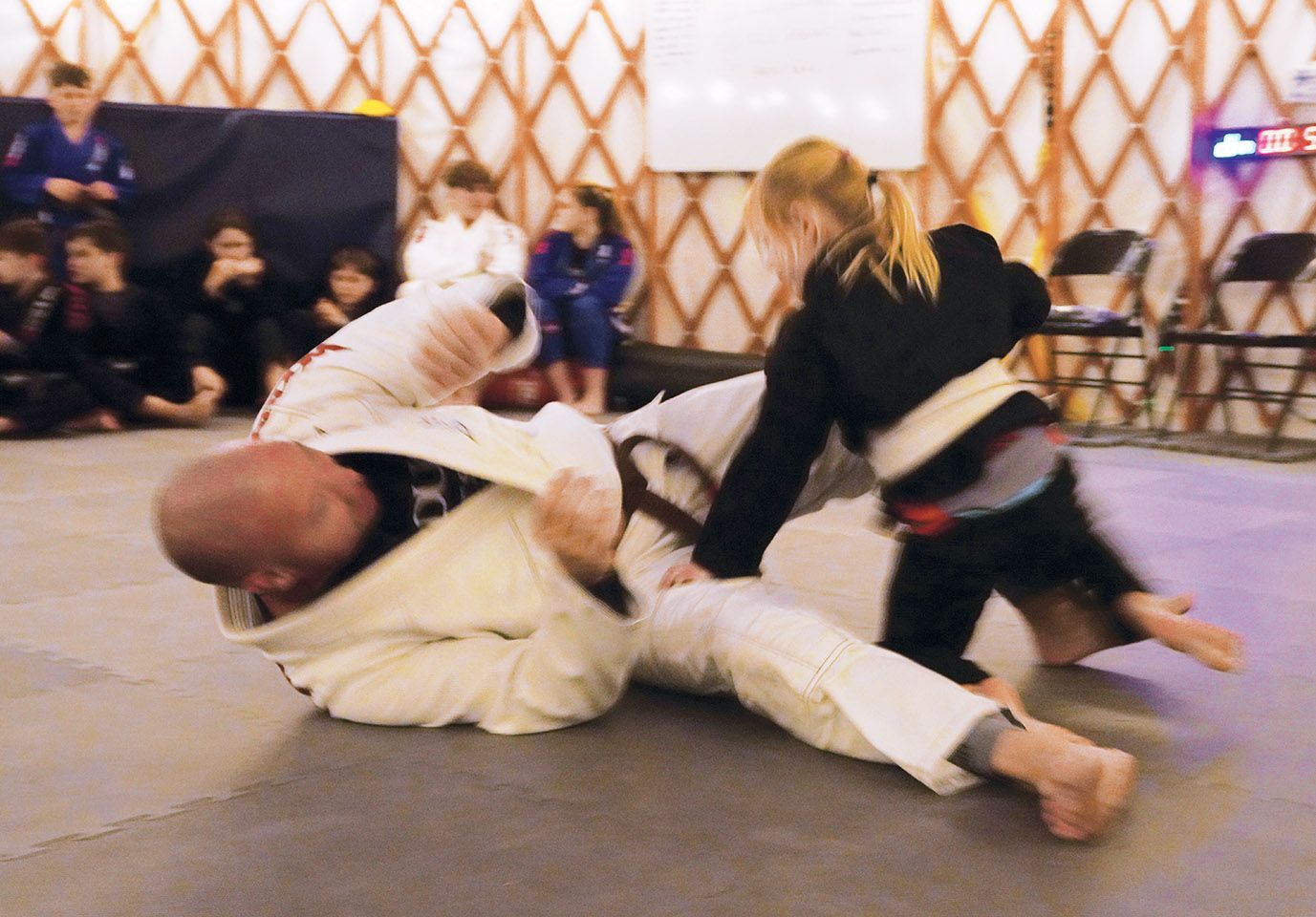
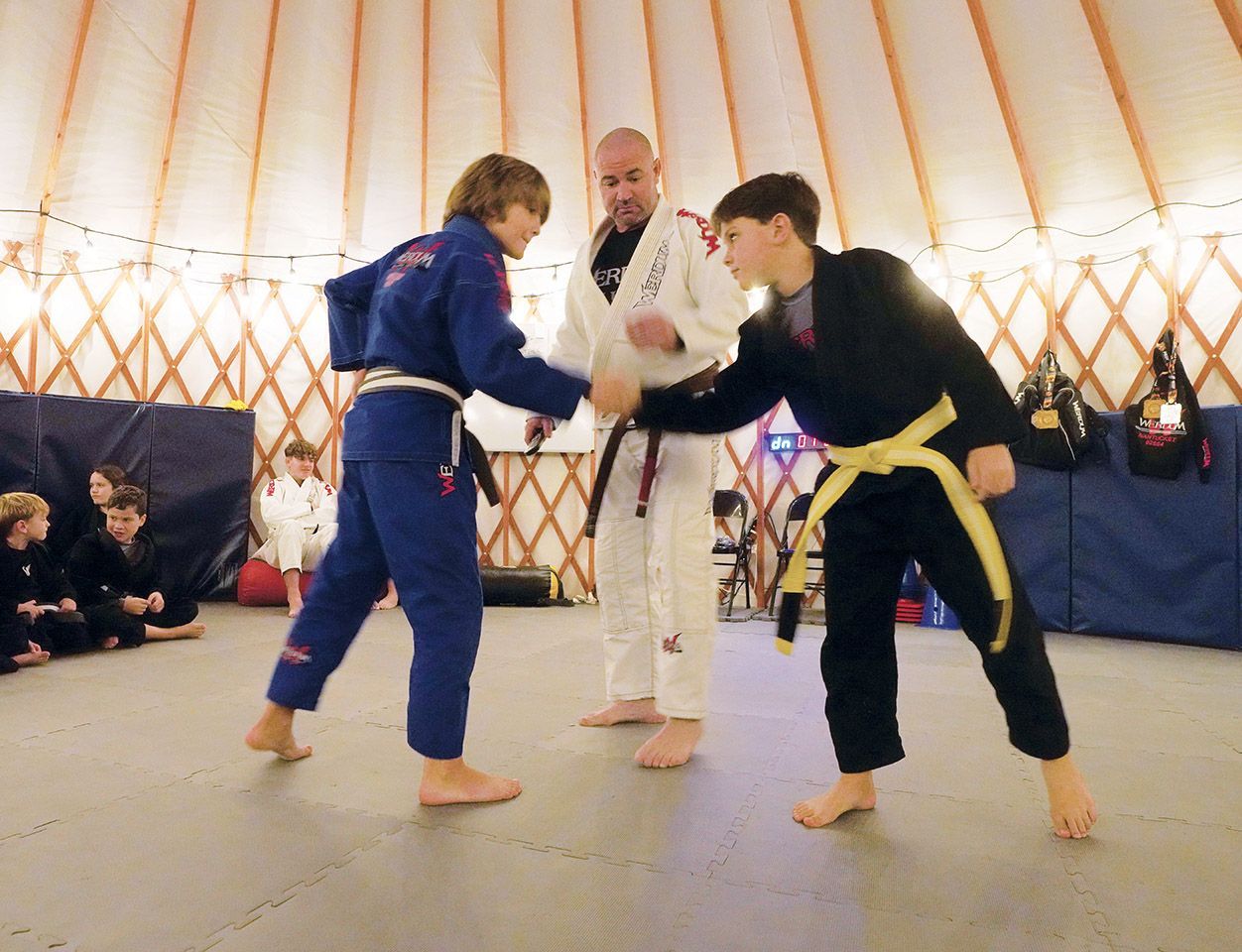
This extends to the younger community onisland, which Dobrochinski focuses on. Outside of holding children’s classes regularly, he also teaches BJJ at the Nantucket New School and Strong Wings Adventure School for eight weeks every year for children in grades 5 through 8. He also has a facility on the Strong Wings campus, allowing children to come to after-school programs easily. The martial art has gained so much traction that Dobrochinski led the Werdum children’s team (ages 5-16) to several competitions in 2023, including the Professional Brazilian Jiu-Jitsu Federation’s Boston Fall Open. The Werdum Nantucket Academy placed second of 20 teams.
“It’s totally different than any other sport because they’re 100 percent active the entire time. It’s not like soccer, where the ball might not touch your feet for minutes at a time. … In jiu-jitsu, you’re in contact, engaged constantly,” Dobrochinski explains. He adds that, unlike most other martial arts that focus on kicks and quick, upright movements, BJJ gets students comfortable on the ground and teaches them to neutralize an opponent efficiently, with as little violence as possible, through joint locks and chokes.
It’s one reason why BJJ has proven to be one of the most effective martial arts in the world, giving top UFC fighters like Charles Oliveira, Fabricio Werdum (the Werdum Training Center’s founder) and Nate Diaz a leg up in the ring compared to their counterparts who are primarily focused on upright fighting.
Todd says, “It’s like a puzzle for the body and for the mind that keeps you coming back for more despite any frustration that comes up. It’s a beautiful practice for learning the right balance of knowing when to tap or let go, how to stay in control, and choosing the right action at the right time.”
Embry-Pelrine and Dobrochinski hope to grow the Nantucket BJJ community in the near future. “It tends to be very community building because you’re struggling together towards a common goal,” Embry-Pelrine says, noting that the closeness of the sport, in general, also helps to melt away any social awkwardness.
Both instructors dream of having larger facilities and programs, which would help the on-island martial arts society to thrive. Dobrochinski concludes, “We fight with each other, but we fight for each other. Our own growth is strengthened and reflected through the growth of our partners. We want everybody to get better, not only for their jiu-jitsu but for their life outside of jiu-jitsu.”

